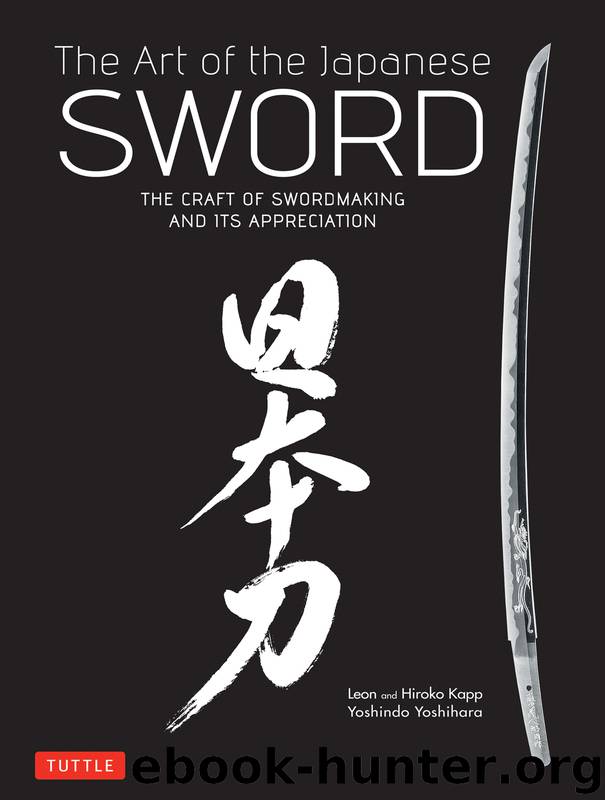The Art of the Japanese Sword by Yoshindo Yoshihara & Hiroko Kapp & Yoshindo Yoshihara

Author:Yoshindo Yoshihara & Hiroko Kapp & Yoshindo Yoshihara
Language: eng
Format: epub
ISBN: 978-1-4629-0996-4
Publisher: Tuttle Publishing
Scanning electron microscope (SEM) photos of red pine charcoal (left) and oak charcoal (right) in cross-section.
Different techniques are used for tatara charcoal production in different places. However, the primary objective of each technique is to obtain a reducing flame during the smelting operation. Studies have shown that pine, chestnut, and oak are the best raw materials to make charcoal for the tatara operation. Japanese cedar can be used, but it is not as effective as pine and oak. Cherry and hornbeam are not effective for smelting. Under the tatara’s operating conditions, pine and chestnut burn very rapidly, and therefore raise the tatara temperature rapidly, but these woods can only burn for a short time. These types of charcoal are used only when a high temperature is required for a very short time.
If the cross-section of charcoal is observed with a scanning electron microscope (SEM), a honeycomb structure can be seen, as in the photos at left. The pores of pine charcoal have a larger diameter than oak charcoal, while oak charcoal has thicker cell walls than pine charcoal. As it is easier for oxygen to penetrate through the larger pores, combustion takes place faster when pine charcoal is used, rapidly generating a high temperature inside the tatara furnace. In contrast, the structure of oak charcoal results in a slower burning rate and a longer combustion period at a constant temperature, giving it a longer useful life. It is used once tatara operations are underway.
Download
This site does not store any files on its server. We only index and link to content provided by other sites. Please contact the content providers to delete copyright contents if any and email us, we'll remove relevant links or contents immediately.
| Africa | Americas |
| Arctic & Antarctica | Asia |
| Australia & Oceania | Europe |
| Middle East | Russia |
| United States | World |
| Ancient Civilizations | Military |
| Historical Study & Educational Resources |
The Sympathizer by Viet Thanh Nguyen(4385)
The Rape of Nanking by Iris Chang(4203)
World without end by Ken Follett(3474)
Ants Among Elephants by Sujatha Gidla(3463)
Blood and Sand by Alex Von Tunzelmann(3195)
Japanese Design by Patricia J. Graham(3167)
The Queen of Nothing by Holly Black(2588)
City of Djinns: a year in Delhi by William Dalrymple(2554)
Foreign Devils on the Silk Road: The Search for the Lost Treasures of Central Asia by Peter Hopkirk(2463)
India's Ancient Past by R.S. Sharma(2451)
Inglorious Empire by Shashi Tharoor(2437)
Tokyo by Rob Goss(2427)
In Order to Live: A North Korean Girl's Journey to Freedom by Yeonmi Park(2387)
Tokyo Geek's Guide: Manga, Anime, Gaming, Cosplay, Toys, Idols & More - The Ultimate Guide to Japan's Otaku Culture by Simone Gianni(2368)
India's biggest cover-up by Dhar Anuj(2351)
The Great Game: On Secret Service in High Asia by Peter Hopkirk(2344)
Goodbye Madame Butterfly(2251)
Batik by Rudolf Smend(2179)
Living Silence in Burma by Christina Fink(2068)
